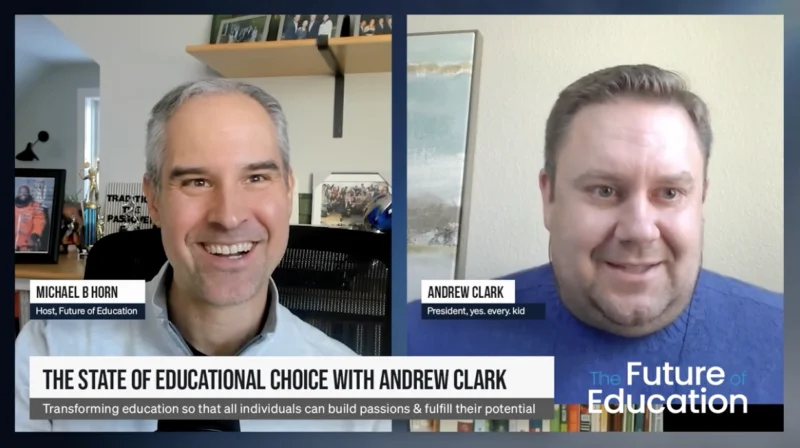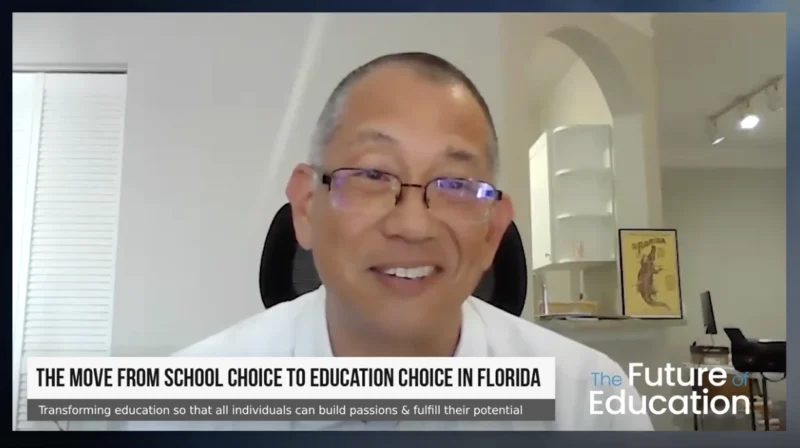Career Planning Beyond the College Track: How Work-Based Learning Expands Career Options for Students
As debates around the value of college heat up and the demand for skilled workers rises, a growing number of educators and policymakers are rethinking the “college for all” mindset. A 2024 report from Georgetown’s CEW found that many middle-skill jobs—requiring only a certificate or associate’s degree—pay over $53,000 annually early on in a career and rise to $80,000 by mid-career. Now, guidance systems are evolving to support a broader range of postsecondary paths including career training, technical education, and work-based learning.
So, how do we help students and families make informed choices in an increasingly complex education and career landscape?
In this episode of The Future of Education, host Michael Horn is joined by Jonathan Hughes, Associate Director of College Planning and Education at the Massachusetts Educational Financing Authority (MEFA). They dive into how MEFA Pathway—a free college and career planning platform—helps middle and high school students across Massachusetts explore interests, understand their options, and prepare for life after graduation.
Key moments in the conversation include…
- How MEFA Pathway differentiates itself from other platforms by offering free access, training, and localized tools for students and educators.
- The evolution of MEFA’s mission from college-focused financing to holistic postsecondary planning, including career exploration and work-based learning opportunities.
- The growing role of lesson plans, counselor engagement, and employer partnerships in preparing students for multiple paths after high school.
Jonathan Hughes is the Associate Director of College Planning and Education at MEFA, where he has over two decades of experience helping students and families navigate college financing and planning. Since joining MEFA in 2001, he has led customer service initiatives and developed educational resources across savings, loans, and career pathway programs. Earlier in his career, he gained operational experience in data entry and healthcare systems while working at Partners HealthCare.




